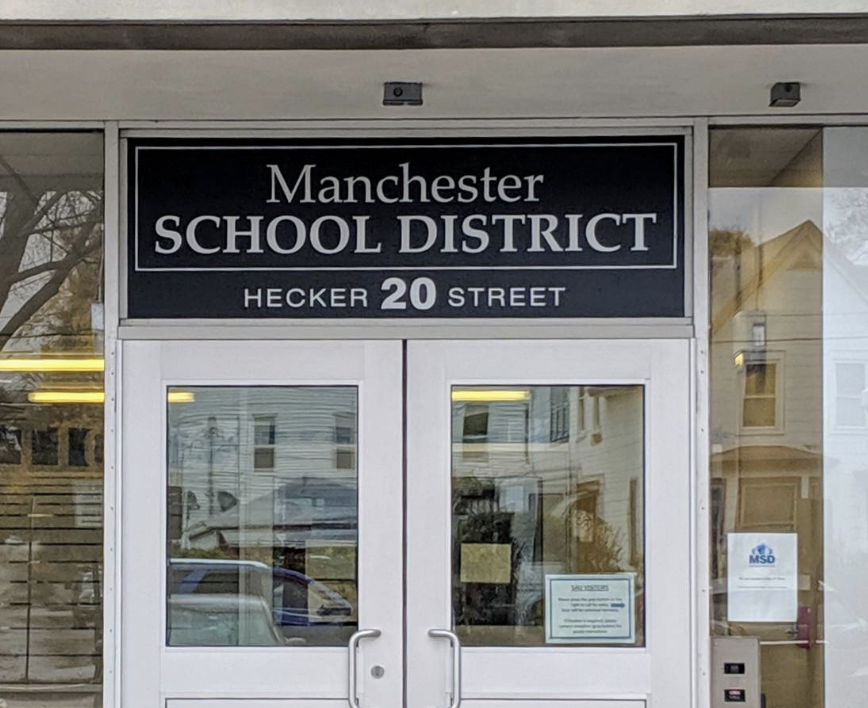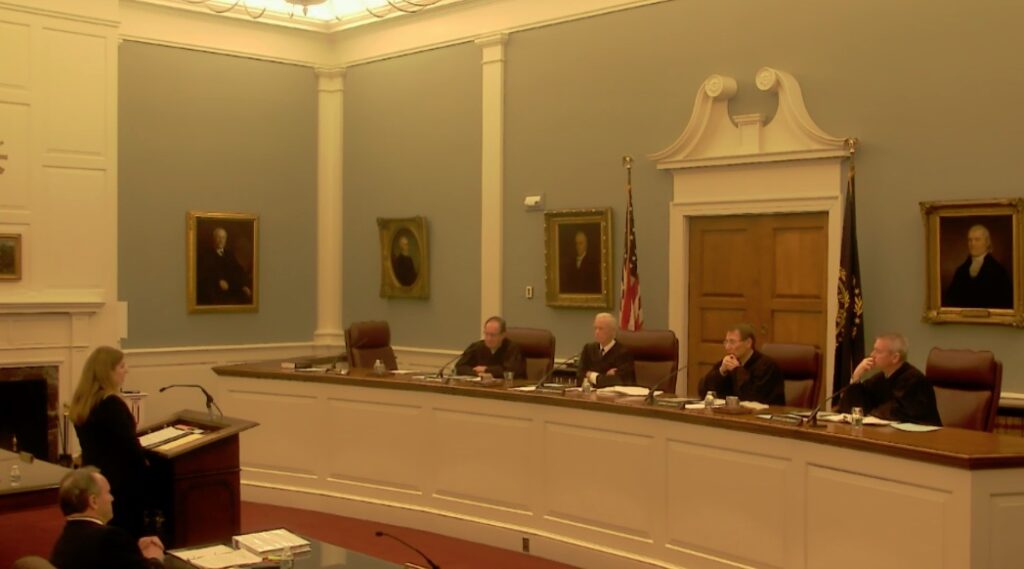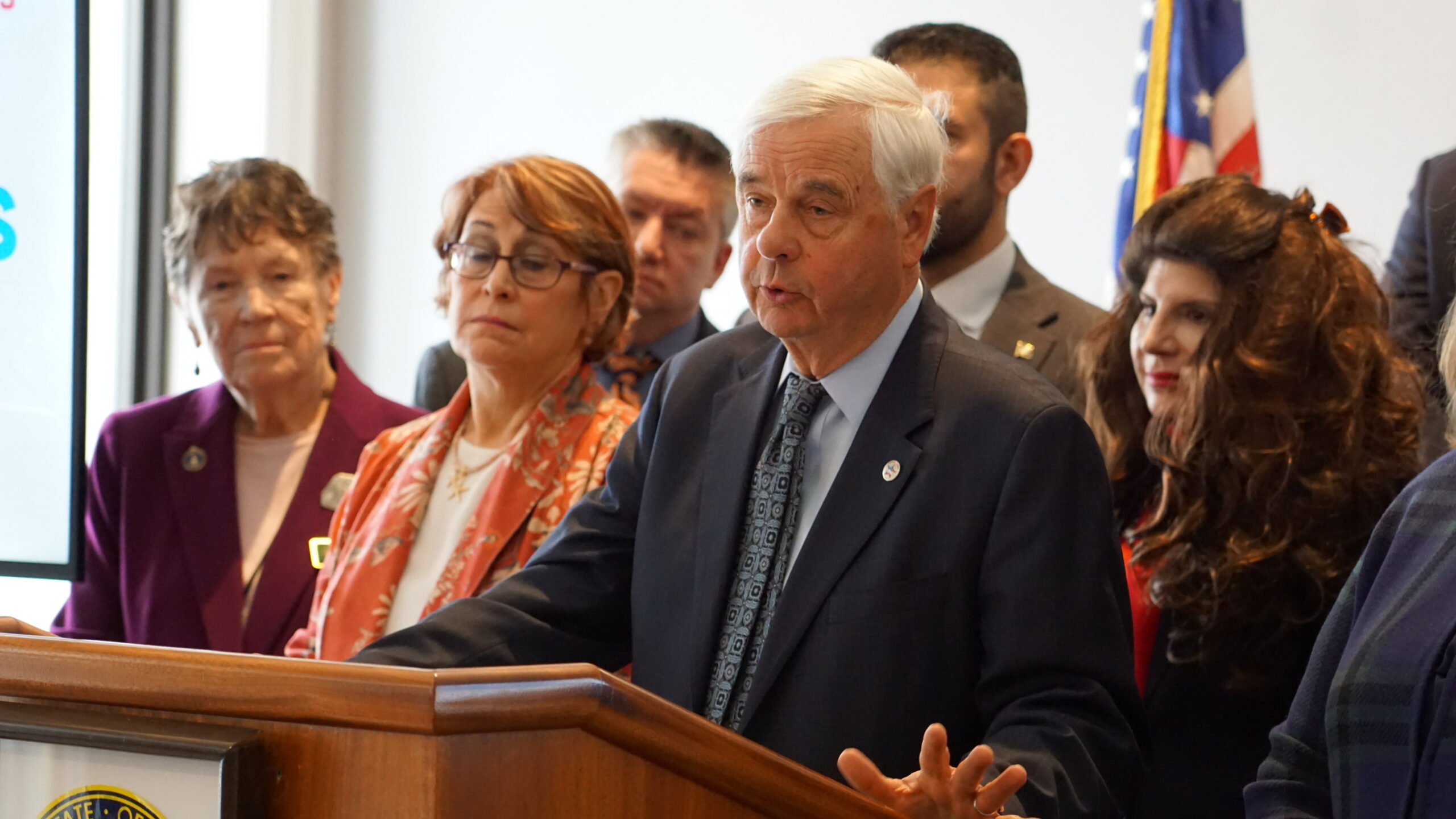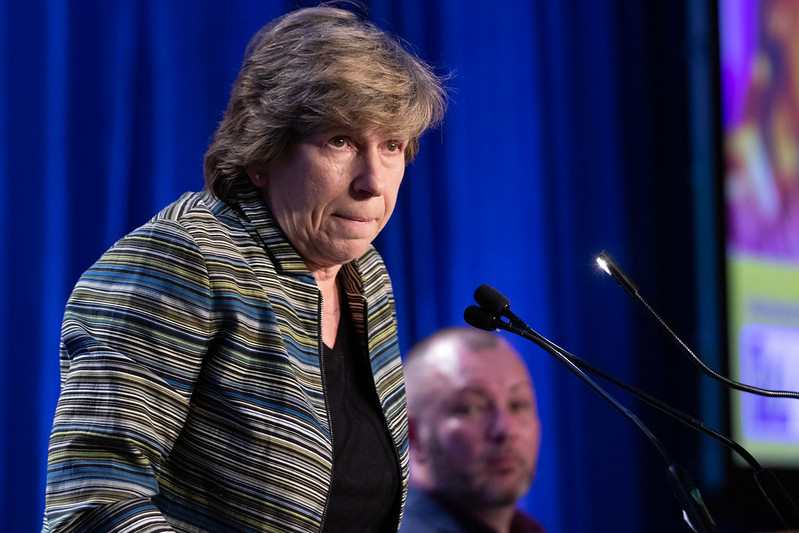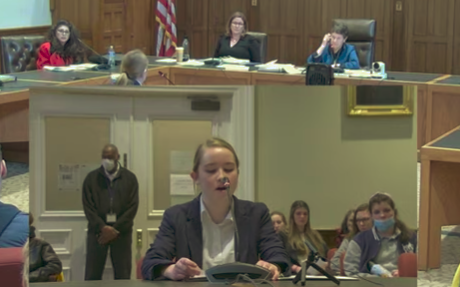Rulings in Two Education Funding Lawsuits Coming Soon
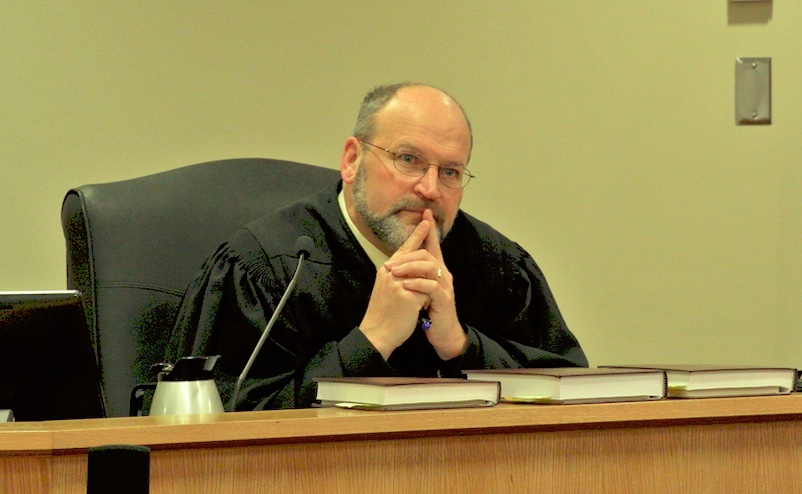
Could the next 60 days see an end to New Hampshire’s school funding system as we know it?
Rockingham Superior Court Judge David Ruoff told lawyers Wednesday he is set to rule sometime in the next 60 days on either the final decision in the Contoocook Valley Regional School District adequacy grant lawsuit or the summary judgment for the Grafton County lawsuit seeking to cancel the Statewide Education Property Tax or SWEPT.
“Time is of the essence here for everyone involved,” Ruoff said.
New Hampshire lawmakers, education leaders, and local school boards have been tussling for decades over how to fund a constitutionally-mandated adequate education. Despite hundreds of millions in new funds going to education this year alone, there is still no agreement on how to pay for public schools.
Ruoff is now the one man in the state who could change everything thanks to the lawsuits which landed before him in court.
The original judge on the Grafton County case, Grafton Superior Court Judge Lawrence MacLeod, recused himself last year, citing a potential conflict of interest. MacLeod is a property owner in one of the property-rich towns pushing to keep the current SWEPT system in place.
MacLeod’s recusal sent the case to Ruoff. Ruoff is also under orders from the New Hampshire Supreme Court to decide in the ConVal case exactly how much the state should pay per pupil.
In both cases, the school districts claim the way the state is currently funding education, using an unevenly enforced SWEPT to pay for adequacy grants that do not cover all necessary expenses, is unconstitutional.
Ruoff initially ruled in ConVal’s favor, agreeing the state is not paying enough per pupil, but he left setting a particular amount to legislators. On appeal, the Supreme Court ruled Ruoff needed to hold a trial and set a specific dollar amount.
New Hampshire upped its per pupil adequacy grant this year to $4,100. But the plaintiffs in the ConVal case are looking for just short of $10,000 per pupil. Ruoff listened to weeks of testimony this year; his highly anticipated ruling is pending.
With approximately 160,000 students in the state’s K-12 public schools, a $10,000 adequacy payment would cost state taxpayers $1.6 billion yearly.
Meanwhile, lawyers representing the state and the Grafton County plaintiffs argued in court Wednesday over an injunction to set the SWEPT rate at 0, as the plaintiff wants. Ruoff indicated he would issue a judgment in the case without need for a trial since neither side disputes the facts about how schools are funded.
SWEPT accounts for 30 percent of education funding in New Hampshire. Under a law change in 2011, a loophole was created. Now as many as 30 wealthier communities in New Hampshire are keeping a portion of the money raised through SWEPT, essentially getting to set a negative property tax rate, while poorer communities end up with higher SWEPT rates to make up for their low property values.
Michael Jaoude, an attorney for the plaintiffs, said the uneven SWEPT burden violates the Claremont decision from the 1990s, which ruled there is a constitutional right to adequate education and that the cost needs to be shared equally.
“No resident should have a greater burden of funding that constitutional right than another,” Jaoude said.
SWEPT started in 1999 as a response to the Claremont decision, which found the state has a constitutional obligation to fund adequate education. The money raised, more than $360 million estimated in the coming year, is used to fund state adequacy grants.
Senior Assistant Attorney General Sam Garland said ruling for the Grafton County plaintiffs would have disastrous impacts on local town and school budgets. Garland said the plaintiffs have not shown that the SWEPT system is unconstitutional, and their arguments don’t hold up.
“We don’t think they’ve made that showing, and we don’t think they can make that showing as a matter of law,” Garland said.
Garland said even if the 2011 law creating the SWEPT exemptions might be unconstitutional, the tax itself is not, and Ruoff should allow the rate to be set.
Ruoff indicated the whole SWEPT issue might be moot depending on his eventual ruling in the ConVal case.

